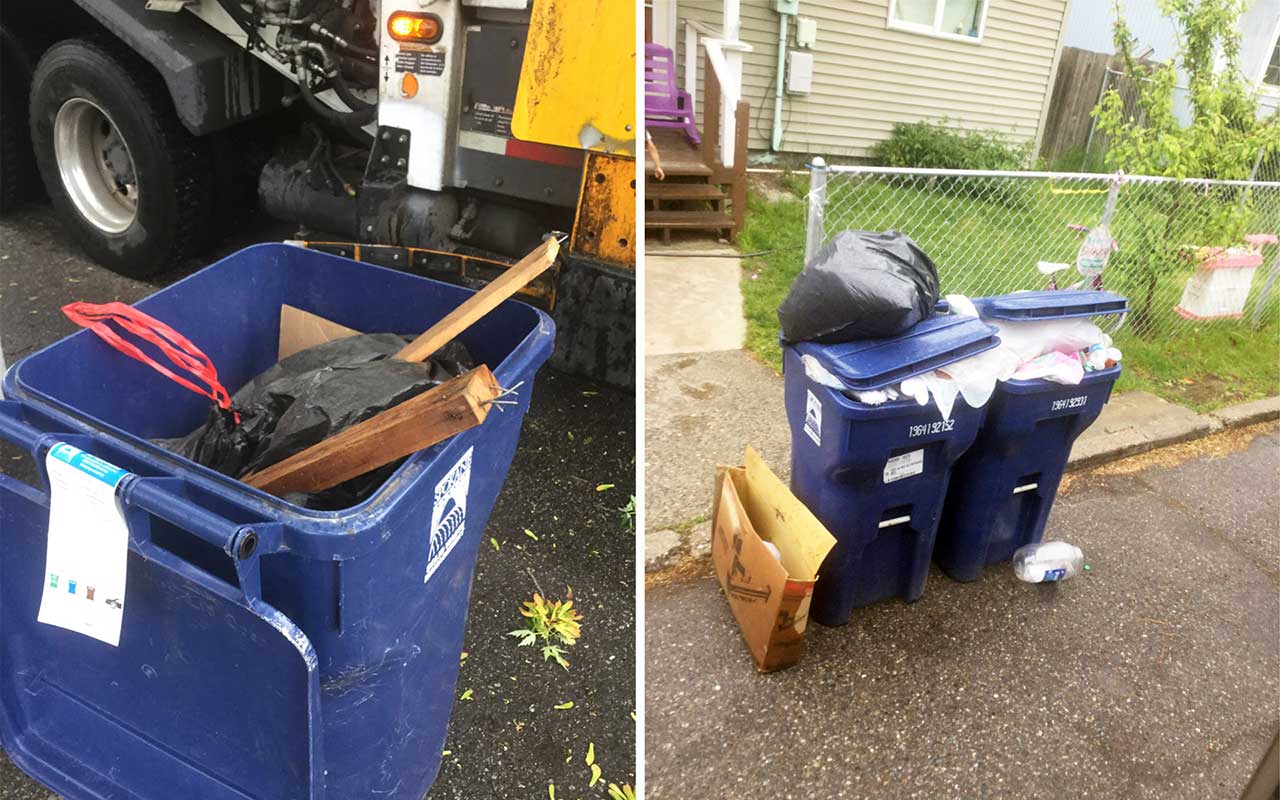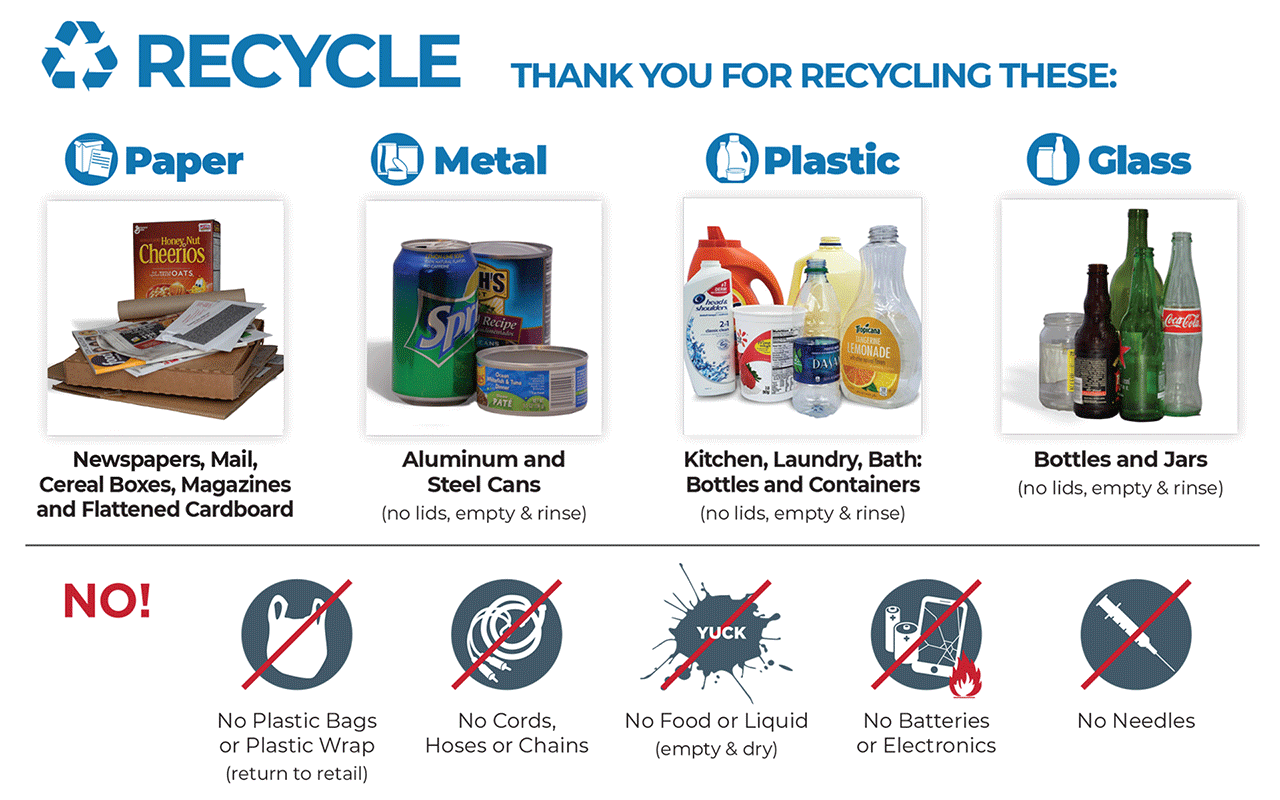
Tagging Cleans Up City’s Recycle Carts
Kristine Major, Solid Waste Education Coordinator, 509.625.6521
Wednesday, January 27, 2021 at 5:42 p.m.

Updated: 07/07/2021
Did you get an "Oops” tag on your recycling cart last summer?
If so, you were part of the city’s education campaign to reduce contamination in recycling carts.
Rising contamination rates leading to increased costs to handle recyclables has prompted the City of Spokane to take measures to reduce recycling contamination.
Select routes were studied and “tagged” with information for four consecutive weeks last summer, and the results were analyzed to see if the direct feedback provided by the tags as well as messaging provided through utility bill inserts and direct mailers would help reduce contamination. About 17,000 households were tagged in the city on 15 different routes. A quarter of all city residences were included in the study.
Cart tagging was just one outreach strategy that the City of Spokane used to reduce contamination in curbside recycling. A utility billing insert, a mailed postcard, educational videos, and social media posts were also part of outreach funded by The Recycling Partnership, a national non-profit working to improve recycling in the United States. Spokane was the first community in the Pacific Northwest to receive funding from TRP for cart tagging.
Study partners included the Spokane County Regional Solid Waste System and the Waste Management SMaRT Center where staff conducted pre-and post-audits to determine the percentage of contamination in recycling trucks collecting from the study routes.
Here are highlights from the final report:
- Routes that had recycling cart contents checked and customized “Oops” tags issued had an average 12.9 percentage point reduction in contamination over the course of the study. Routes that had no tagging had an average of 3.4 percentage point reduction after receiving education only through the utility bill insert and postcard mailing.
- On average, only 50% to 60% of households set out their recycling cart at the curb on any given week.
- The percentage of households that received an “Oops” tag decreased over the four weeks of tagging.
- Plastic bags and recyclables gathered in paper or plastic bags or cardboard boxes were the most common contaminants found in carts.
- The rate of households that cleaned up their carts after receiving an “Oops” tag varied from route to route. It seemed that in some neighborhoods, tagging was more effective at decreasing contamination than in other neighborhoods.
What’s next in the campaign to get the trash out of Big Blue? City Solid Waste staff are looking at ways to expand cart tagging this summer while looking at better ways to educate residents on what is accepted in recycle carts.
The complete study results can be found online, executive summary and the full report.
Getting the Garbage out of Big Blue!


More About...
- Blue Bins
- Cart Tagging
- Contamination
- Live
- Recycle
- Recycling
- Reduction
- Report
- The Recycling Partnership
